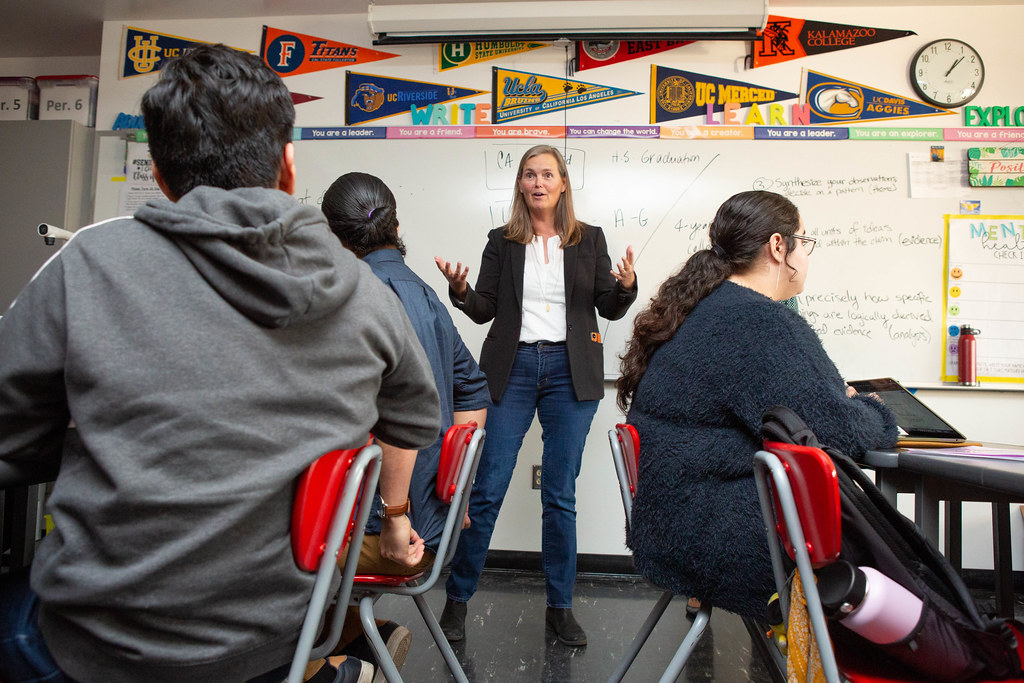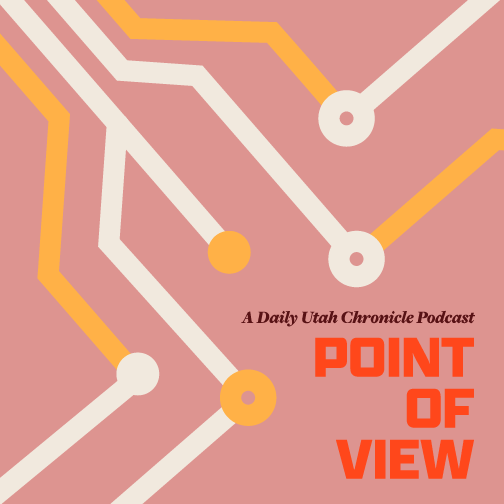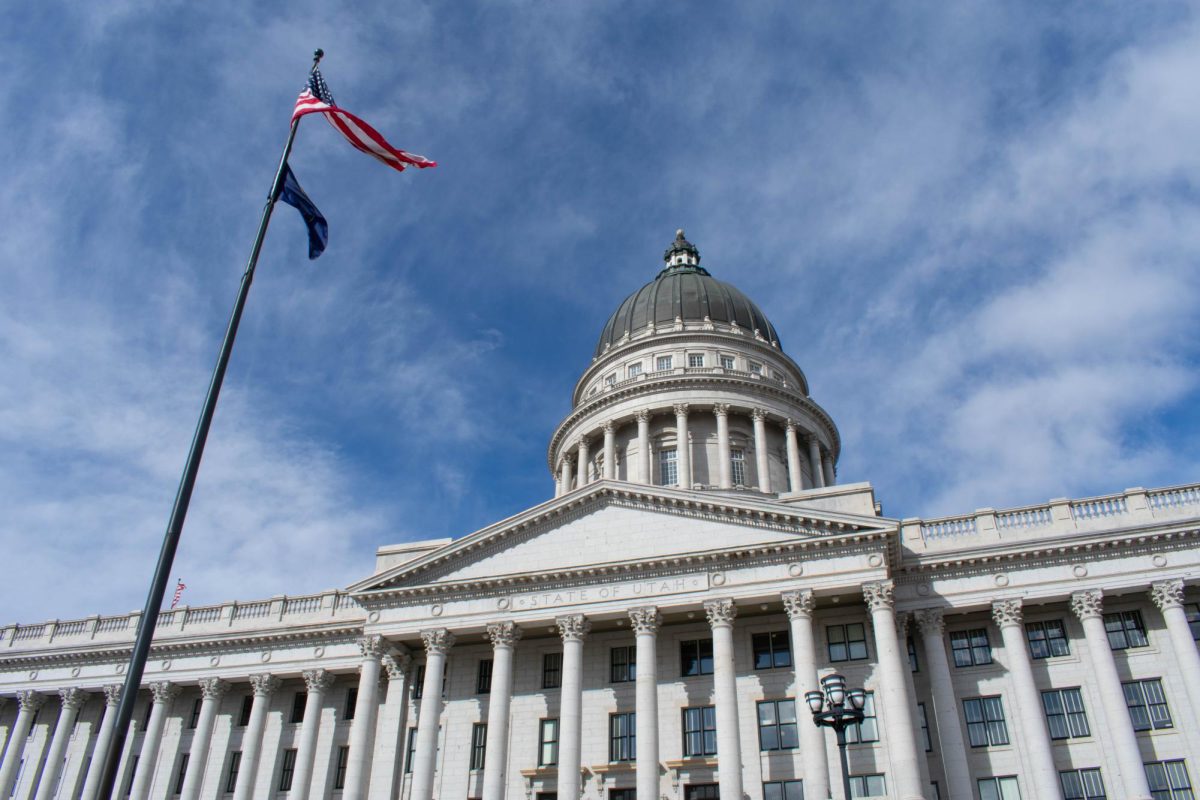President Donald Trump undeniably seizes media attention from all angles, whether it concerns his ties with Russia, tweets claiming wiretapping or new hires like Ivanka Trump and Jared Kushner. The profusion of press publicity Trump generates by himself can be jarring. Luckily, journalists did not drop a beat when Secretary of Education, Betsy DeVos, delivered her first policy address at Brookings Institute.
On Wednesday, March 29, DeVos expounded on her policy goals for the new administration as head of the education department. This speech comes two weeks after the Trump administration released its proposed “skinny budget” — an outline of how the president would detail the national budget. Congress will ultimately decide how America’s budget is actually allocated, but this proposed budget each year generally serves to reflect the administration’s priorities.
The Department of Education faces a 13 percent (or $9 billion) cut despite it being but a small niche in the national budget to begin with. The national government only contributes approximately a tenth of the funding toward K-12 education — the rest comes from local and state sources — so taking more money out of our schools seems appalling. And if anyone should be appalled by having the Department of Education reduced further than it already is, it’s DeVos.
Except, she’s not. In her address at the Brookings Institute, DeVos championed school choice programs and their need to be promoted across the nation. It is still unclear whether she endorses the budget proposal, even though she was directly asked this after her speech. What is clear is that, for DeVos, “throwing money at the problem [our education system]” is not the solution.
Having lived in Las Vegas before attending the University of Utah, I can say that more money would have solved a serious lack in my education. Nevada ranks 49th in the nation in public education. According to the 2016-2017 Comprehensive Annual Budget Report for my city’s school district (CCSD), federal aid accounted for less than 0.0% of the general operating budget. CCSD is in dire need of teachers, updated equipment and textbooks and after-school programs. Coincidentally, funds for these needs are also being cut or reduced under the “skinny budget.” How is a size zero in federal aid still not skinny enough?
DeVos would rather focus on choice — that which “unleashes forces that are dormant in the regular district model.” School choice refers to the option for students to attend whichever school they choose regardless of zoning restrictions. School choice programs allow for “competition among schools, opportunities for innovation, different ways of hiring and rewarding staff.” Having that choice of alternative education programs is only fair. The main two variants of school choice programs are charter and private schools.
Charter schools are open public schools, essentially. The appeal of charter schools is that they are individualized and work with fewer restrictions than traditional public schools. Picking a reliable charter school can be tricky, however. According to a 2013 study, 29 percent of charters outperform in math while 31 percent underperform in math compared to the public schools nationally. It also depends on the state the charter school operates in. For example, D.C. charters produce an additional 72 days worth of learning reading and 101 days worth of learning math. In contrast, Nevada charters are behind 108 days in learning reading and 137 days in learning math.
Private schools are another subject completely. They operate by donations and tuition fees since they do not receive public school funding. The appeal of private schools is similar to charter schools: individualized educational climate, fewer restrictions from the school district, alternative teaching methods, etc. It is difficult to compare the private school method and the public education system in terms of success, however. Public schools, including charters, are required to give students certain standardized tests; private schools may choose their standardized testing, making test scores incongruous to start. In terms of college readiness, college admission officers do not discriminate between private and public educated students. Admission officers individually research the school(s) applicants have attended and base admissions on rigor rather than prestige.
Essentially, there is no one right way to approach a student’s education. Students should look at their options and pick which is right for them. It’s like picking between Uber and Lyft, right? That’s not my analogy. DeVos was heavily criticized for comparing the education system to ride-sharing businesses during her address.
DeVos said, “The truth is that in practice, people like having more options. They like being able to choose between Uber Pool, Uber X, Lyft Line, Lyft Plus, and many others… Why do we not allow parents to exercise that same right to choice in the education of their child?”
To that I reply: because education is not a business. There are two types of consumers: those that can afford a service or product, and those who are left behind. DeVos claims she wants to “provide a quality education to every child to serve the greater public common good.” I then ask, when public education is being slashed by the Trump administration, why does she not speak up about the quality education they deserve? Or is a $1.4 billion budget shift toward school choice programs too tempting to argue with?






















